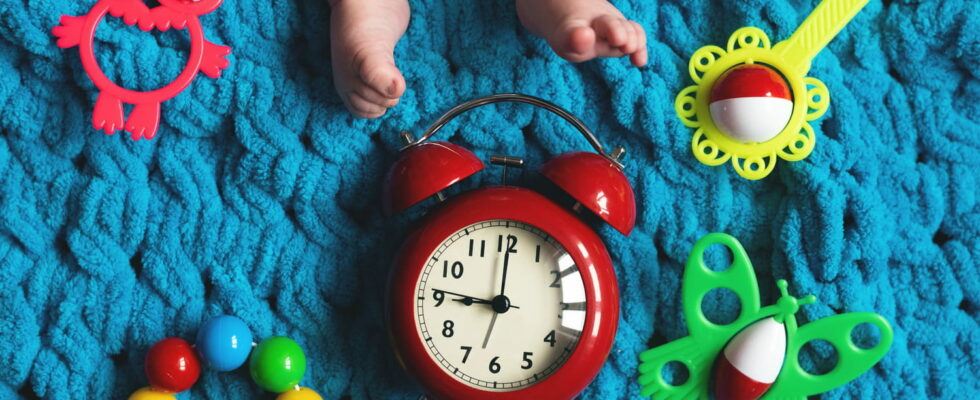When we switch to winter time, we go back an hour, which means an hour more sleep… but is baby ready to extend his nights like this? Advice from Sylvie Royant-Parola, psychiatrist specializing in sleep disorders so as not to disturb it.
This year, the transition to winter time takes place on the night of Saturday October 26 to Sunday October 27, 2024. At 3 a.m., it will therefore be 2 a.m. So we go back an hour, which allows us to sleep an hour more! If the prospect of an extra hour of sleep seems positive to us, we must not forget the impact that these changes in hours can have on our body and children’s sleep, starting with sleep patterns and fatigue. In fact, the days are getting shorter and the lack of light can also affect toddlers falling asleep.
How to manage the time change with a baby?
So that you, parents, can take advantage of this extra hour of sleep, and so that baby quickly adapts to it too, it is advisable to put in place a few tips that will allow a smooth transition, without any trauma to the rhythm already established. , and yet so fragile! So, plan to make all baby’s meals a quarter of an hour earlier. Just before bedtime, give him a nice relaxing bath, which will encourage him to fall asleep more easily. And finally, make sure to carry him and ask him very regularly during the previous days, to teach him to distinguish day and night.
The change to winter time takes place during the All Saints holidays, and therefore, in the middle of the school term. To help them get back into the rhythm, there are several changes to make in their habits. This period is therefore less painful for them, but also for you! “Parents can put their little ones to bed and get up earlier. Switching them to the new time right away is an effective way to get them through this period smoothly. It is also essential to accompany them to bed with a bedtime ritual. This is true in everyday life, but even more so in this moment. Generally speaking, it is best to anticipate three or four days before the change to summer or winter time. You must also be careful not to push activities into the evening.“
